Speaker
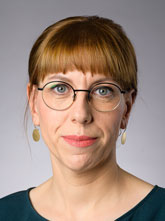
StMin Katja Meier
Staatsministerin der Justiz für Demokratie, Europa und Gleichstellung
Katja Meier (born 10 September 1979) is a German politician who is a member of Alliance 90/The Greens. She was a member of the Landtag of Saxony 2015-2020 and has been serving as Saxon State Minister of Justice and for Democracy, European Affairs and Equality since 20 December 2019.
Meier was born in Zwickau. In the 1990s, she played bass in a local punk band called Harlekin. After passing her Abitur in 1998, she studied political science, modern and contemporary history and sociology at the Universities of Jena, Tartu, and Münster, graduating with a MA degree in 2004.
Meier became a member of the Greens in 2005 and became a member of the Landtag of Saxony in 2015, after the originally elected Eva Jähnigen gave up her seat. Jointly with Wolfram Günther, she was elected as her party's top candidate in the 2019 Saxony state election. Subsequent coalition talks led to a black-red-green coalition under Minister-President Michael Kretschmer, and Meier was given the post of Saxon State Minister of Justice and for Democracy, Europe and Equality on 20 December 2019, and subsequently gave up her seat in the Landtag on 9 January 2020.

StMin Anna Lührmann
Minister of State for Europe and Climate
Anna Lührmann (born 14 June 1983 in Lich, Hessen) is a German political science professor and politician of Alliance 90/The Greens who has been serving as a member of the German Bundestag since the 2021 elections. In addition to her work in parliament, she has been Minister of State at the Federal Foreign Office in the government of Chancellor Olaf Scholz since December 8, 2021.
Anna Lührmann became the youngest-ever member of the German Parliament in 2002, as well as the youngest member of parliament in the world. As an academic, she later served as the Deputy Director of the Varieties of Democracy (V-Dem) Institute and Assistant Professor at the University of Gothenburg, and returned to politics in 2021, currently representing the Rheingau-Taunus-Limburg constituency in the German Bundestag.
Political Career
Anna Lührmann first became involved in the Green Party at thirteen and her election came after a fast career in the youth organisation Grün-Alternatives Jugendbündnis.
In parliament, Anna Lührmann served on the Budget Committee from 2004 until 2009. In this capacity, she was her parliamentary group’s rapporteur on the annual budgets of the Federal Ministry of Transport, Building and Urban Affairs, the Federal Ministry of Family Affairs, Senior Citizens, Women and Youth and the Federal Ministry for Economic Affairs and Technology.
Anna Lührmann has been a member of the German Bundestag again since the 2021 elections.
Academic Career
Anna Lührmann began studying political sciences at FernUniversität Hagen, where she obtained her BA, followed by a MSc in Gender and Peace Studies from Ahfad University (Sudan), and a MA in Research Training in Social Sciences from Humboldt University. In 2015, she received her PhD from Humboldt University in Berlin. In August 2015, she joined the Varieties of Democracy Institute at the Department of Political Science, University of Gothenburg, Sweden, as Postdoctoral Research Fellow. Lührmann's research interests include democratic resilience, autocracy, elections, regime legitimacy, and democracy aid and the United Nations.
From 2009 until 2011 Anna Lührmann advised the UNDP in Sudan on electoral and parliamentary issues. She is lead author of UNDP's handbook "Enhancing Youth Political Participation Throughout the Electoral Cycle A Good Practice Guide", published in 2013.
Other activities
Franco-German Institute Ludwigsburg (dfi), Ex-Officio Member of the Executive Committee (since 2021)
German Federation for the Environment and Nature Conservation (BUND), Member
European Partnership for Democracy (EPD), Member of the Advisory Board
German Federal Environmental Foundation (DBU), Member of the Board of Trustees (2007–2008)
German Foundation for World Population (DSW), Member of the Board of Trustees (2002–2005)
Publications
"Wolfgang Merkel and Anna Luhrmann on the Resilience of Democracies". CEU Democracy Institute. n.d. Retrieved December 1, 2021.
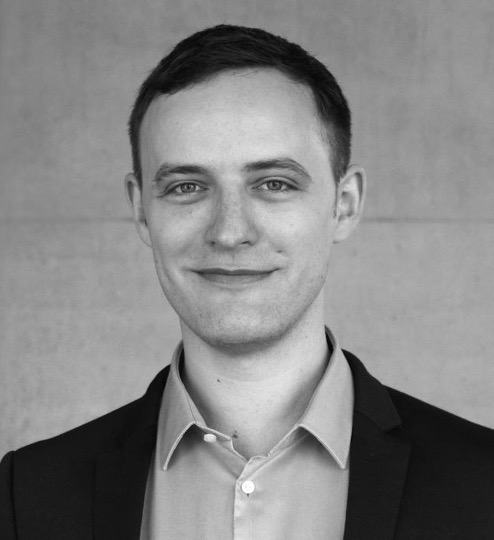
PD Dr. Konrad Duden
Max Planck Institute Hamburg
Konrad Duden studied chemistry and law at the Universities of Munich, Heidelberg and Bilbao. Both during and following his studies he worked as a student assistant and research assistant at the Institute for comparative law, conflict of laws and international business law at the University of Heidelberg (chair of Prof. Dr. Dr. h.c. Thomas Pfeiffer). After completing a Master’s programme at the University of Cambridge, he was awarded his doctoral degree in 2015 by the University of Heidelberg. In 2021, Konrad Duden was subsequently awarded his post-doctoral degree from the University of Hamburg on the basis of a work (Habilitationsschrift) that examined the meaning of digitalization for property law.
His doctoral dissertation ("Leihmutterschaft im Internationalen Privat- und Verfahrensrecht" [Surrogate Motherhood in Private International Law and the Law of International Civil Procedure]) was supervised by Prof. Dr. Dr. h.c. mult. Erik Jayme and received multiple honours, including the Otto Hahn Medal of the Max Planck Society and the Gerhard Kegel Prize of the German Society of International Law. He sat for the second state exam in law following his legal traineeship, which included stations at the German Federal Constitutional Court and the European Commission.
In 2016 Konrad Duden became a research fellow in the working group of Prof. Dr. Dr. h.c. mult. Jürgen Basedow, under whom he had been working as an assistant at the Institute since 2012. He is, additionally, a lecturer at the University of Hamburg, a member of the Young Academy with the Academy of Sciences and Literature in Mainz, and since 2018 a member of the “Zukunftsfakultät” of “Recht im Kontext” at the Humboldt University of Berlin.
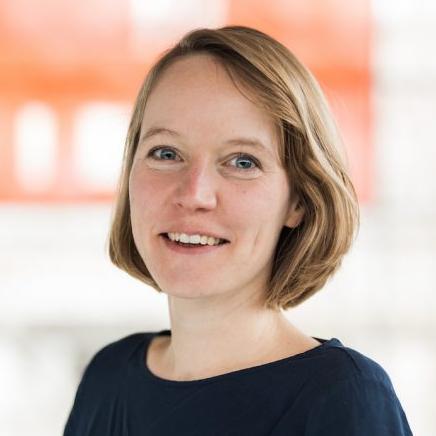
Dr. Lisa H. Anders
Leipzig University
Lisa H. Anders studied social sciences at Hunboldt University in Berlin. In 2012 she graduated as a doctor of political sciences at Berlin Graduate School of Social Sciences.
From 2013 to 2017 she worked as an academic staff member at the chair of politics an governance in Germany and Europe at the Potsdam University. She moved to Leipzig University in 2017, first as an academic staff member at the chair of political sciences to become sub-project head for the project “re-act – the rule of law in East Central Europe”. Additionally, she co-works on the project “The European Union and Its Rural Periphery in East Central Europe" at the Jean Monnet Centre of Excellence.
Lisa H. Anders teaches und does research on Eurpoean politics, the political system of the federal republic and qualitative methods in political sciences. She did her doctorate on the two-level games in the Eurpean multi-level system and published on Eurpean (dis)integration, the politisation of the EU and on the Europeanisation of national election campaigns. Currently, Dr. Anders adresses the problem of the rule of law dismantling in the EU member states as well as on concepts of the rule of law in East Central Europe.
Publications
Lorenz, A.; Anders, L. H. (Hrsg.)
Illiberal Trends and Anti-EU Politics in East Central Europe
Cham: Palgrave Macmillan. 2021
Priebus, S.; Anders, L. H.: Rechtliche Lösungen für politische Konflikte?
Rechtsstaatsbezogene Vertragsverletzungsverfahren gegen Ungarn
integration. 2020. 43 (2). S. 121-135
Anders, L. H.; Scheller, H.; Tuntschew, T. (Hrsg.)
Parteien und die Politisierung der Europäischen Union; Wiesbaden,Springer, 2018
Anders, L. H.
Europäische Integration als Ausdruck einer Strategie zur Ausweitung exekutiver Handlungsspielräume?
Zeitschrift für Politikwissenschaft. 2018. 28 (3). S. 343-357
Eppler, A.; Anders, L. H.; Tuntschew, T.
Europe´s political, social, and economic (dis-)integration: Revisiting the Elephant in times of crises; 2016

Prof. Dr. Ivo Šlosarčík
Charles University Prague
Ivo Šlosarčík graduated from the Faculty of Law, Charles University in Prague (1997) and the Central European University in Budapest (1999). He is a lecturer in European and international law at Jean Monnet Center of Excellence, Charles University and also at the Prague campus of the New York University. In 2000 he was Visiting Researcher at the European University Institute in Florence, Italy and also received a certificate as a trainer for the civil service in EU affairs from the Civil Service College in Sunningdale, United Kingdom.
Ivo Šlosarčík is a professor of European Integration Studies, Jean Monnet Chair in EU Politics and Administration (2017) and Jean Monnet Chair in EU Law (2006) at Charles University in Prague. He holds an LL.M. in comparative constitutional law (Central European University in Budapest) and a Ph.D. in international law (Charles University in Prague). Ivo Šlosarčík also served as a director for research at EUROPEUM Institute for European Policy, and as member of governmental advisory bodies on the European Constitutional Treaty and the EU Council Presidency. Ivo Šlosarčík's research focuses on the EU constitutionalization, rule of law in the EU and Europenization of national civil service and judiciary.
Doc. Šlosarčík has published extensively on EU affairs, especially on legal issues of European integration, judicial and police co-operation in the EU and the transformation of national political and administrative structures in the context of EU membership. He is also a member of numerous editorial boards and expert associations.

Prof. Dr. Werner Reutter
Martin Luther University Halle-Wittenberg
Werner Reutter studied political sciences at the London School of Economics and Political Science at the Freie Universität Berlin (FU Berlin) where he graduated in political sciences in December 1987. In 1990 he finished his doctorate in philosophy at the Freie Universität Berlin followed by a one-year research stay at Centre de Recherche sur le Politique, l’Administration et le Territoire (C.E.R.A.T.) in Grenoble.
He returned to FU Berlin in 1992 as a research associate, finishing the habilitation procedure in September 1998, receiving the Venia legendi in political sciences. Since then he regularly works as a private lecturer in political sciences at the Berlin Humboldt-University (HU Berlin) as well as in several deputy professorships at the Universities of Potsdam, Lüneburg, Jena Bonn and Berlin (FU) until 2017. Furthermore, from 2002 to 2004 he joined the Department of Political Science at the University of Minnesota (USA) as a DAAD-professor. In 2018, he worked as a senior fellow at the Baldy Center for Law & Social Policy, University at Buffalo (State University of New York, USA). Currently, Prof. Dr. Reutter heads the chair of Comparative Government and Policy Research at the Halle-Wittenberg University.
Prof. Dr. Reutter published extensively on the subjects of Constitutional Politics in the German federal states.
Projects
10/2013-03/2018 at the Leipzig University as a research associate, working on the project „Muster und Determinanten der Landesverfassungspolitik in der Bundesrepublik Deutschland“
04/2018-06/2021 at the Berlin Humboldt-University as a reseach associate tot he project: „Landesverfassungsgerichte und Justizialisierung in den deutschen Bundesländern“
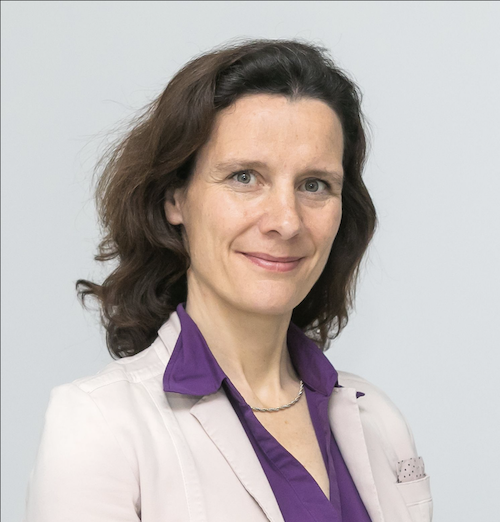
Prof. Dr. Stephanie Schiedermair
Leipzig University
Stephanie Schiedermair (born 13 May 1977 in Heidelberg) is a German judicial professor. From 1996 to 2001 she studied aw, German studies, political sciences and history in Dresden and Mainz (2001 first juridical state exam). After Habilitation in 2012 in Law and Economics at Johannes Gutenberg-University in Mainz (Venia legendi for public law, international law, European law and media law), 2014 she became university professor (W 3) at the chair for European law, international law and public law at Leipzig University.
Publications
with Dieter Dörr: Rundfunk und Datenschutz. Die Stellung des Datenschutzbeauftragten des Norddeutschen Rundfunks. Eine Untersuchung unter besonderer Berücksichtigung der verfassungsrechtlichen und europarechtlichen Vorgaben. Frankfurt am Main, 2002
with Dieter Dörr: Die Deutsche Welle. Die Funktion, der Auftrag, die Aufgaben und die Finanzierung heute. Frankfurt am Main, 2003
with Dieter Dörr: Die zukünftige Finanzierung der deutschen Universitäten. Ein Beitrag zu den verfassungsrechtlichen Vorgaben unter Berücksichtigung der Rechtsprechung zur Finanzausstattung des öffentlich-rechtlichen Rundfunks. Bonn, 2004
Der internationale Frieden und das Grundgesetz. Baden-Baden, 2006with Dieter Dörr: Ein kohärentes Konzentrationsrecht für die Medienlandschaft in Deutschland. Frankfurt am Main, 2007
Der Schutz des Privaten als internationales Grundrecht. Tübingen, 2012

Assoc. Prof. Dr. Anna Śledzińska-Simon
University of Wrocław
Dr hab. Anna Śledzińska-Simon is Associate Professor of Constitutional Law at the University of Wrocław, Department of Law, Administration and Economy. She holds a S.J.D. and LL.M. in Comparative Constitutional Law from the Central European University (Budapest, Hungary).
She has held visiting fellowships at the Hungarian Academy of Sciences (Budapest, Hungary), New York University School of Law (New York, USA), European University Institute (Florence, Italy), Columbia University School of Law (New York, University) and Max-Planck Institute for Comparative Public and International Law (Heidelberg, Germany).
Her research and writing concerns comparative constitutional law and human rights, with a special focus on antidiscrimination law. She is currently involved in several international projects (including a project on cultural and religious diversity in Europe, CUREDI, led by Max-Planck Institute for Social Anthropology in Halle, and gender and constitutionalism in Central and Eastern Europe).
Since 2019 she is a member of the Advisory Board of the International Journal of Constitutional Law. She is a guest lecturer at the Academy of European Law and serves as a senior legal expert at the Fundamental Rights Agency of the European Union, the Batory Foundation and the Local Social Council of the Polish Ombudsman.

Prof. Dr. Anne Sanders
Bielefeld University
Prof. Dr. Anne Sanders, M.Jur. heads the chair of public law, corporate law, family business law and justice research at the Bielefeld University, Germany. She studied law sciences at Berlin Humboldt University (1997-2001) and Oxford (2005-2006). She did her doctorate (2007) and habilitated (2017) at Cologne University. Furthermore she was engaged as scientific associate at the German Federal Constituional Court (2009-2011) and worked as a junior professor at the Bonn University (2013-2017).
As a part-time engagement she is a judge at the Higher Regional Court in Hamm, Westfalia, and supports the Council of Europe as judicial expert with topics regarding the rule of law and judicial organisation.
Anne Sanders does research in the fields of family law, organisation of courts and legal questions regarding sustainable entrepreneurship in family businesses as well as with companies in steward-ownership. She received several teaching awards. In recent years she published several articles on the topics of recruitment and promotion of judges, civil justice in Germany and judicial independence in Europe.

Prof. Dr. Christoph Hönnige
Leibniz University Hanover
Prof. Dr. Hönnige is holding the Chair for Comparative and German Politics at the Leibniz University Hanover. After having graduated from the University of Konstanz, in 2006 he received his PhD (supervisors Herbert Döring and André Kaiser) from the University of Potsdam. Before being appointed Chair in Hanover he worked as Associate Professor for German Politics at the Georg-August-University Göttingen and as Assistant Professor for Comparative and German Politics at the University of Kaiserslautern. His research focuses on three aspects: (1) Constitutional Courts in comparative perspective and the German Federal Constitutional Court, (2) parliaments and (3) administrative reforms at universities. In all research fields he focuses on the impact of institutional rules on individual behavior and the behavior of groups.
Curren Project (et. al.)
"Courts under pressure: How social media change political discourse about the rule of law in modern democracies”, 2021 - 2024 (VW Foundation/MWK)
Publications (et al)
“Verfassung und Verfassungswandel im Mehrebenensystem“, Hönnige, Christoph, Sascha Kneip, Astrid Lorenz (eds) (2011): VS Verlag für Sozialwissenschaften
„Herausforderungen und Einflusschancen beratender Institutionen in der Europäischen Union: Der Ausschuss der Regionen und der Europäische Wirtschafts- und Sozialausschuss“, Hönnige, Christoph und Diana Panke (2019), in: „Handbuch Europäische Union“, Becker, Peter und Lippert, Barbara (Hrsg.), Wiesbaden, Springer VS Verlag, S. 481-490
„Rolle und Einfluss des Bundesverfassungsgerichts in der Amtszeit der Regierung Merkel III“, Meyer, Philipp and Christoph Hönnige (2019), in: „Zwischen Stillstand, Politikwandel und Krisenmanagement. Eine Bilanz der Regierung Merkel 2013-2017“, Zohlnhöfer, Reiner und Saalfeld, Thomas (eds.), Springer VS, S. 317-341
„Modern Times? Das Internet vor dem Bundesverfassungsgericht“, Engst, Benjamin und Christoph Hönnige. (2019), in: „Netzpolitik. Ein einführender Überblick“, Busch, Andreas, Breindl Yana., und Jakobi, Tobias, Springer VS, S. 163-187
Publications
Besides repeatedly publishing on topics regarding the EU Court of Justice in the Common Market Law review and the European Constitutional Law Review he records “The Boards of Appeal of EU Agencies: A New Paradigm of Legal Protection?” in the editor’s volume “Judicial and Extra-Judicial Review: The Quest for Epistemic Certainty”. Further publication:
“Relative Authority of Judicial and Extra-Judicial Review: EU Courts, Boards of Appeal, Ombudsman”, Michal Krajewski, 2021

Dr. Katarína Šipulová
Masaryk University Brno
Katarína Šipulová is the co-director of the Judicial Studies Institute, Law Faculty, Masaryk University, Brno.
She earned her PhD in European Studies at the Faculty of Social Studies, Masaryk University, and an MSt degree in Socio-Legal Research at the University of Oxford. Apart from the academic work, she held a position as the head of the analytical department at the Supreme Court of the Czech Republic and provided consultation to both Supreme and Constitutional Court of the Czech Republic, Czech Ministry of Justice and Slovak Ministry of Finances, mostly in projects targeting the rule of law or international commitments.
She regularly taught courses regarding “Human Rights, Democracy and Constitutionalism” and “Transitional Justice and Democratization” at Faculty of Social Studies, Masaryk University.
Katarína Šipulová gives policy and consultancy advice and consultation for the Czech Supreme Court, Czech Ministry of Justice, and Slovak Ministry of Finances. She holds a membership in the Committee for Fundamental Rights and Prevention of Discrimination of the Czech Republic’s government Council for Human Rights, and is a member of the Steering Committee of the Law and Courts Group in the European Consortium for Political Science. She holds a further membership in the ICON-S Interest Group “Informal Institutions” and ICON-S CEE Chapter.
Dr. Šipulová’s research activities are centered on courts, judicial independence, transitional justice and democratization of the Central and Eastern European countries. Her standing research projects include: Courts and informal institutions and European Judicial Resistance.
Selected publications
Between Human Rights and Transitional Justice: Constitutional Courts’ Dilemma in Post-Communist Central Europe. Europe-Asia Studies, 2021, Vol. 73, No. 1, pp. 101-130 (with Hubert Smekal)
Under Pressure: Building Judicial Resistance to Political Interferences. In: Galligan, Denis (ed.). The Courts and the People: Friend or Foe? (Hart 2021, forthcoming)
Domestic Judicial Treatment of European Court of Human Rights Case Law: Beyond Compliance. Routledge 2020 (with David Kosař, Jan Petrov, Hubert Smekal, Ladislav Vyhnánek, and Jozef Janovský).
The Czech Constitutional Court: Far away from political influence. In Kálmán Pócza. Constitutional Politics and the Judiciary Decision-making in Central and Eastern Europe. New York: Routledge 2019, 32-60.
Capturing the Judiciary from Inside: The Story of Judicial Self-Governance in Slovakia. German Law Journal, 2019 Vol. 19 No 7, 1741-1768 (with Samuel Spáč and Marína Urbániková)
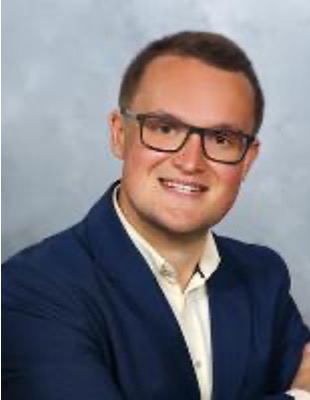
Dr. Michał Krajewski
University of København
Michał Krajewski is a Postdoctoral Research Fellow. He holds PhD in Law and LL.M. from the European University Institute (Florence, Italy) and Master's degree in law from the University of Warsaw (Poland). Previously, he worked as a junior legal officer at a legal research unit of the Polish Constitutional Tribunal and was a trainee at the Court of Justice of the European Union and the Legal Service of the European Commission.
He is a member of the team of the ERC project 'IMAGINE' led by Professor Jan Komárek. Currently, he studies the Polish constitutional imaginary of discretion exercised by constitutional judges and lawyers interpreting and applying the constitution.
Publications
Besides repeatedly publishing on topics regarding the EU Court of Justice in the Common Market Law review and the European Constitutional Law Review he records “The Boards of Appeal of EU Agencies: A New Paradigm of Legal Protection?” in the editor’s volume “Judicial and Extra-Judicial Review: The Quest for Epistemic Certainty”. Further publication:
“Relative Authority of Judicial and Extra-Judicial Review: EU Courts, Boards of Appeal, Ombudsman”, Michal Krajewski, 2021
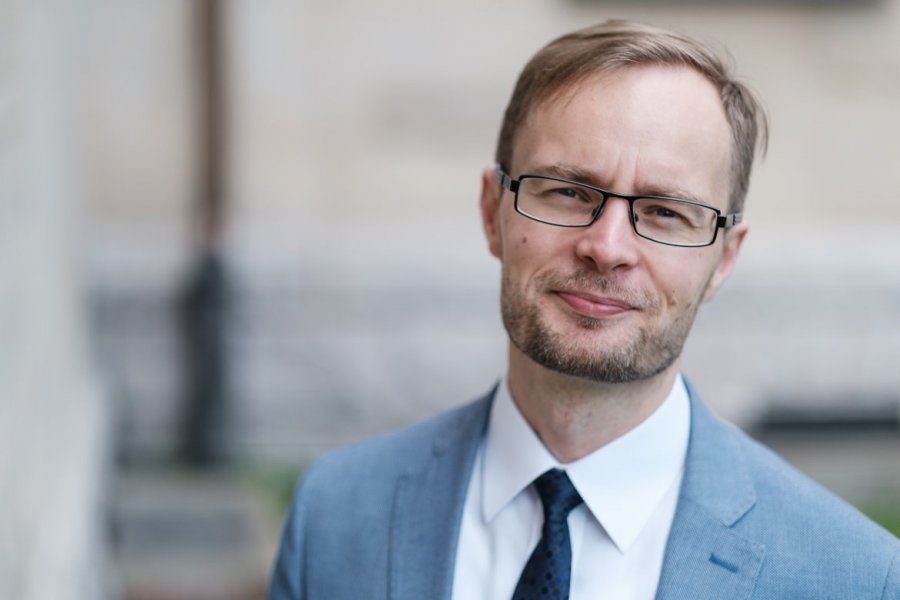
Prof. Dr. Wojciech Piątek
University Poznań
Membership in international scientific organizations and review boards:
1. RENEUAL (Research Network for Administrative Science),
2. Instituto Iuridico Portucalense, University Portucalense in Porto,
3. Bratislava Law Review (Faculty of Law Comenius University, Bratislava),
4. Justice Administration Research Association.
International conferences (selected):
1. Der Einfluss des Unionsrechts auf die Verwaltungsgerichtsbarkeit at the International Conference Prozessrecht in nationaler, europäischer und globaler Perspektive, Hamburg 30 September 2016 – 1 October 2016,
2. Right to an effective remedy in European law at the International Conference Interactions and Basic rights, Shandong University, School of Law, Jinan (China), 18 March 2017,
3. Effiktivität der verwaltungsgerichtlichen Kontrolle in Europa, at the national – Austrian conference 6. Linzer Verwaltungsgerichtstag, Johannes Kepler University Linz, 25 September 2017,
4. The constitutional protection of property and the principle of proportionality at the International Conference Protection of Property – a Sino-European Comparison, China University of Political Law and Science, Bejing, 23 March 2018,
5. The validity of the principle of mutual trust between the EU Member States in mutual assistance for the recovery of public claims at the International Conference EU Administrative Law within and beyond the single market, Universidad de Castilla - La Mancha, Almagro (Spain), 18 May 2018,
6. Legal aspects of reducing the bureaucracy of court administration, at the International Conference Understanding public bureaucracy, National University of Public Service, Budapest, 11 June 2018,
7. Access to the highest administrative courts: between a right of an individual to hear a case and a right of a court to hear selected cases on the EGPA Annual Conference in Belfast (Quees`s University Belfast), 12 September 2019,
8. Perspectives of using Artificial Intelligence in administrative proceeding on the Bratislava Legal Forum 2020, 7 February 2020 (together with I. Gontarz),
9. Administrative supervision as a measure for shaping trust towards courts and judges during an international conference Supervision over courts and judges, Microsoft Teams, 28-29th September 2020,
10. The Polish legislation on the administrative procedure during the CoCeal Worhshop (ERC project) concerning the influence of Austrian Legislation on Administrative procedure on other legal systems (years 1920-1970), Zoom platform, 22nd October 2020. The final conference in this area took place in Rome on 25th June 2021 (participation with paper devoted to the Polish legislation on the administrative procedure).
Leadership in projects granted on behalf of:
1) decision of the Director National Science Centre (hence forth NSC) from 13 October 2011, No DEC-2011/01/D/HS5/01526 (project title: International cooperation between European Union Member States in recovering public claims; budget 67 462 PLN) - finished,
2) decision of the Director NSC from 5 December 2013, No DEC-2013/09/B/HS5/00151 (project title: The Enforcement of Administrative Court Judgments; budget 125 240 PLN) - finished,
3) decision of the Director NSC from 15 November 2017, No DEC-2017/25/B/HS5/00343 (project title: Administrative supervision of courts and judges; budget 299 374 PLN) - ongoing,
4) decision of the Director NSC from 18 February 2019, No DEC-2018/30/E/HS5/00421 (project title: Appealability of administrative courts judgments; budget 1 271 630 PLN) - ongoing,
5) decision of the Visegrad Fund from 23 May 2019, No 21910091 (project title: Simplifications in administrative proceedings; budget 9 700 Euro) – ongoing,
6) decision of the Director NSC from 20 May 2021, No DOW.420.121.8.2020 (project title: Normative ways of shaping public confidence to administrative courts; budget 540 559 PLN) - ongoing.
Attendance in international projects:
1. German-Chinese project „Interactions and Basic Rights – Relationships as Elements of Constitutionals Conceptions in China and in the EU”. Leading entities: University in Hamburg, Faculty of Law, Shandong University, School of Law, 2016-2017,
2. German-Chinese project “Constitutional protection of property”. Leading entities: University in Hamburg, Faculty of Law, China University of Political Science and Law, 2017-2018,
3. Common Core of European Administrative Law (CoCeal) – European Research Council – role in the project: national rapporteur from Poland.
Internships:
1. Ernst Moritz Arndt University in Greifswald, 26.04.2016-03.05.2016, within universities cooperation,2. Portucalense University Infante D. Henrique in Porto, 23.04.2017-30.04.2017, Erasmus+ Staff Mobility for Teaching,
3. Humboldt Universität zu Berlin, 01.07.2017-30.09.2017, Deutscher Akademischer Austauschdienst,
4. Oxford University, 14-22.06.2018 r., AMU financing,
5. Ludwig-Maximilians University in Munich, 23-30.10.2018, Bayerisches Hochschulzentrum für Mittel-, Ost- und Südosteuropa,
6. Universities in Oslo and Bergen, 30.04-09.05.2019, AMU financing,
7. University in Milan, Council of State in Rome, 27.11-05.12.2019, AMU financing,
8. Max Planck Institute in Heidelberg and Heidelberg University (Institute for German and European Administrative Law), 16.07-01.08.2021, from research project sources,
9. National Courts Administration in Trondheim and University in Oslo, 28.08-05.09.2021, from research project sources.
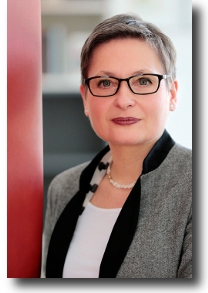
President Bettina Limperg
Presidency of the German Bundesgerichtshof
Mrs. President Bettina Limperg (born on April 5, 1960 in Wuppertal, Germany) is a German jurist. Since July 1, 2014, as the first woman ever in this post, she holds the Presidency oft the German Bundesgerichtshofs.
Bettina Limperg studied Law in Freiburg and Tübingen and graduated in 1988 at Stuttgart University. In 1989 she started her professional career as a prosecutor at the Public Prosecution Department of Stuttgart. Interrupted by her work as Research Assistant at the Federal Constitutional Court (Bundesverfassungsgericht), she was appointed judge in the civil and criminal law section at the Local and Regional Court of Stuttgart. After being appointed judge at the Higher Regional Court of Stuttgart in 2001 and followed by the post as Director oft he Local Court in Waiblingen 2004, in 2009 she was called Vice-President of the Regional Court of Stuttgart.
Prior to her current appointment as President of the Bundesgerichtshof, in 2011 she moved to politics. She was elected Head of the Ministry of Justice and Deputy Minister of Baden-Württemberg.
Additionally, until 2011 Bettina Limpberg was Member of the Board of the Association of Judges and Prosecutors in Baden-Wuerttemberg. Since 2013 she is a Member of the Board of the non-governmental organization “Projekt Chance”, an organisation that endorses the rehabilitation of juveniles and adolescents. In April 2021 she was elected President of the Network of the Presidents of the Supreme Courts of the European Union.

Prof. Dr. Astrid Lorenz
Leipzig University
Prof. Dr. Astrid Lorenz was born 1975 in Rostock, Germany. She is a German professor of German and European Politics and Dean of the Faculty of Social Sciences and Philosophy at Leipzig University. Her main research interests include democracy, participation, constitutional change, politics in multi-level systems (federations, European Union) and transformation processes.
Astrid Lorenz graduated at the Free University of Berlin with a Diploma in Political Science (1997) and a Magistra Artium in Eastern European Studies (1998). From 1998 to 2001 she received a scholarship from the German Research Foundation (DFG) as a Graduate School member. After working as a research assistant at Humboldt University Berlin, she was appointed as Juniorprofessor (assistant professor) there in 2006. In 2008 she acquired the venia legendi with her habilitation thesis "Constitutional Amendments in Established Democracies", which was awarded the Best Postdoc Study Prize by the German Association for Political Science in 2009. In 2011 she was appointed to the University of Leipzig. From 2016 to 2019 she worked as Vice Dean fort he chair of social sciences and philosophy.
Selected publications
„Vorwärts in die Vergangenheit? Der Wandel der politischen Institutionen in der Republik Belarus' seit 1991.“ (dissertation) Humboldt-Universität, Berlin 2001
„Verfassungsänderungen in etablierten Demokratien: Motivlagen und Aushandlungsmuster“ VS Verlag für Sozialwissenschaften, Wiesbaden 2008
„Demokratisierung in Ostdeutschland: Verfassungspolitische Weichenstellungen in den neuen Ländern und Berlin.“ Springer VS, Wiesbaden 2013,
with Andreas Anter und Werner Reutter: „Politik und Regieren in Brandenburg.“ Springer VS, Wiesbaden 2016,
Selected Memberships
Founding chairman (1999–2002) and member oft he advisory board (2002–2006) of „Deutsch-Belarussische Gesellschaft“
Editorial staff member (2010–2015) of the „Politische Vierteljahresschrift“
Member (since 2015) of the Board of Trustees at the „Sächsische Landeszentrale für politische Bildung“
Member (since 2017) to he scientific advisory committee of the „Bundesstiftung zur Aufarbeitung der SED-Diktatur“
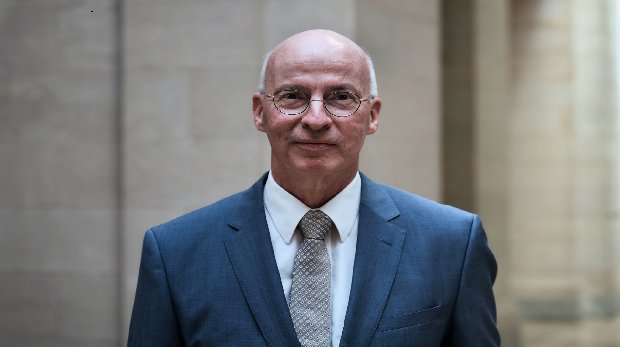
Prof. Dr. Dr. h.c. Klaus Rennert
President of the Federal Administrative Court (ret.)
Prof. Dr. Dr. h.c. Klaus Rennert was born on September 24 in Berlin, Germany. He is a German jurist and honorary professor at the Freiburg Albert-Ludwigs University. He was awarded the honorary doctorate at the Halle-Wittenberg University.
Klaus Rennert received his doctorate in 1987 from Ernst-Wolfgang Böckenförde at the University of Freiburg on the subject "The 'humanities' direction in the constitutional law of the Weimar Republic". He began his legal career in ordinary jurisdiction at the Offenburg Regional Court. In 1986 he switched to administrative jurisdiction and became a judge at the administrative court in Karlsruhe. From there he was seconded to the Federal Constitutional Court as a research assistant for three years and as a consultant to the State Ministry of Baden-Württemberg for one year. In 1994 he became a judge at the Baden-Württemberg Administrative Court. At the Administrative Court, Klaus Rennert dealt with school and university law as well as chamber law and health administration law, among other things. From October 1996 to the end of September 1997, Klaus Rennert was on leave of absence from his work at the Administrative Court and during this time he acted as deputy chair for administrative law and administrative sciences at the University of Freiburg. In 2000 he was appointed honorary professor at the University of Freiburg.
On September 10, 2003, Klaus Rennert became a judge at the Federal Administrative Court, where he initially belonged to the 3rd Revision Senate, dealing with health administrative law, agricultural law, food law, the right to rectify SED injustice, traffic law and economic development. On May 2, 2011, he was appointed chairman of the 8th appeal panel of the Federal Administrative Court. The 8th Senate deals with municipal law, the law regulating property issues, economic administrative law and the law of the liberal professions.
On November 21, 2012, Klaus Rennert was appointed Vice President of the Federal Administrative Court, succeeding Michael Hund, who had retired. In April 2014 it was announced that he was to be elected President of the Federal Administrative Court in May. He took office with his appointment on July 1, 2014. Rennert retired on June 30, 2021.

Prof. Dr. Mattias Wendel
Leipzig University
Prof. Dr. Mattias Wendel (born 1978)
German jurist
since 2020 chair of public law, European law, international law, migration law and comparative law at Leipzig University
Mattias Wendel studied law at Passau University, Berlin Humboldt-university and the Université Paris 1 Panthéon-Sorbonne being fellow of the Studienstiftung des Deutschen Volkes. Durig his stay as research associate (2005 – 2011) and reseach assistant (2011 – 2016) at Berlin Humboldt-University he was awarded a doctoral scholarship at the Studienstiftung des Deutschen Volkes, had a research stay at the Institute of European and Comparative Law (IECL) und St. Hilda’s College at the University of Oxford and did his doctorate, awarded with the doctoral prize of the Faculty of Law. Additionally he was a postdoc in the DFG-Graduiertenkolleg at Berlin Humboldt-University.
After his habilitation at the Berlin Humboldt-university in 2017 he started as deputy chair of public law and European law at Berlin Freie Universität until he turned professor for public law, international law, European law and comparative law at the Bielefeld University in 2018.
Since 2020 he is professor for for public law, migration law, European law and comparative law at the Leipzig University. In 2021 he declined a call from Freiburg University for a professorship in German and foreign public law, European and international law.
His constant research focuses on European an international law, Comparative law, constitutional law, constitutional theory and administrative law. He is co-editor for the European Constitutional Law Review and the Cahiers de droit européen
Selected publications
„Verwaltungsermessen als Mehrebenenproblem. Zur Verbundstruktur administrativer Entscheidungsspielräume am Beispiel des Migrations- und Regulierungsrechts.“, Tübingen 2019
with Nikolaus Marsch and Yoan Vilain (editors): „Französisches und deutsches Verfassungsrecht. Ein Rechtsvergleich.“ Berlin 2015
with Ingolf Pernice, Lars S. Otto, Kristin Bettge, Martin Mlynarski and Michael Schwarz: „Die Krise demokratisch überwinden. Reformansätze für eine demokratisch fundierte Wirtschafts- und Finanzverfassung Europas.“ Baden-Baden 2012
„Permeabilität im europäischen Verfassungsrecht. Verfassungsrechtliche Integrationsnormen auf Staats- und Unionsebene im Vergleich.“ Tübingen 2011

Joachim Herrmann
MEMBER OF CABINET
Portfolio
Rule of Law
Fundamental Rights and Citizenship
Relations with Fundamental Rights Agency (FRA)
Relations with the Council of Europe and other international organisations
Non-portfolio
Economic and Financial Affairs (ECFIN)
European Semester
Financial services (FISMA)
Home Affairs and Promoting our European Way of Life (HOME)
Neighbourhood and Enlargement (NEAR)
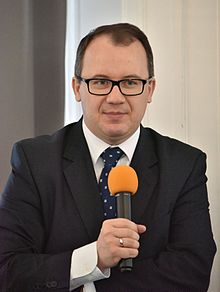
Prof. Dr. Adam Bodnar
Ombudsman for Human Rights of the Republic of Poland (ret.)
Adam Piotr Bodnar (born 6 January 1977) is a Polish lawyer, educator, and human rights activist. He was the Polish Ombudsman for Citizen Rights from 2015 until being ousted by a decision of the Constitutional Court on 15 April 2021.
Akademischer Werdegang:
In 2000, he graduated in law from the University of Warsaw and in 2001 he obtained the Master of Law degree in the field of comparative constitutional law from the Central European University in Budapest.[2] He also completed a course in European Law co-organized with Cambridge University as well as American Law co-organized with the University of Florida at the Faculty of Law and Administration of the University of Warsaw.[3] In 2006, he received a PhD degree from the University of Warsaw on the basis of his dissertation entitled Multi-level Citizenship in the European Constitutional Sphere.[4] In 2019, he obtained habilitation at his alma mater.“
Beruflicher Werdegang:
He worked as an assistant professor at the Department of Human Rights of the Faculty of Law and Administration of the University of Warsaw as well as academic teacher at the SWPS University of Social Sciences and Humanities in Warsaw.[5]
Until 2004, he worked at the Weil, Gotshal & Manges law office. He then became a member of the Helsinki Human Rights Foundation. In 2008, he served as an expert at the European Union Agency for Fundamental Rights (FRA) where he specialized in the observance of human rights in Poland.
In 2010, he was appointed deputy director of the Helsinki Human Rights Foundation. He also served as chairman of the Panoptykon Foundation as well as Director of the Zbigniew Hołda Association. He was also a member of the board of directors of the UN Fund for Victims of Torture. In 2011 he was awarded with the Tolerance Prize by the Polish LGBT organizations and in 2013 he received a scholarship within the scope of German Marshall Memorial Fellowship programme.
In 2015, he was appointed as the Polish Ombudsman after receiving endorsement of the Civic Platform, Democratic Left Alliance and Polish People's Party. During his tenure he brought a number of local governments to court for their introduction of the controversial LGBT-free zones, which met with criticism from the ruling conservative Law and Justice party.
In 2018, he was awarded the Thorolf Rafto Memorial Prize for the promotion of the fundamental human rights of intellectual and political freedom.
In 2019, he was awarded the Rule of Law Award conferred by the World Justice Project for his "outstanding efforts in strengthening the rule of law in difficult circumstances". He dedicated the award to Karol Modzelewski. The same year he received the Human Dignity Award from the Roland Berger Foundation; however, he declined the award motivating his decision by the Nazi past of the award founder's father. In September 2020, he was awarded the French Order of Legion of Honour for guarding the civic rights and values in Poland. Bodnar has appeared in leading universities' events including at Yale.[18]
Bodnar’s five-year term of office expired in September 2020. However, the two chambers of the Polish parliament (the Sejm and the Senate) could not agree on a successor. Therefore, Bodnar lawfully decided to stay in office. On 15 April 2021, The Constitutional Tribunal issued a ruling that he could stay in office briefly as an interim solution, but for at most three further months.
Publications
Editor with Michał Kowalski, Karen Raible, Frank Schorkopf: “The Emerging Constitutional Law of the European Union. German and Polish Perspectives, ed. 163, Springer, Berlin u. a. 2003.
mit Stanisław Frankowski: “Introduction to Polish Law. Kluwer“, Den Haag 2005.
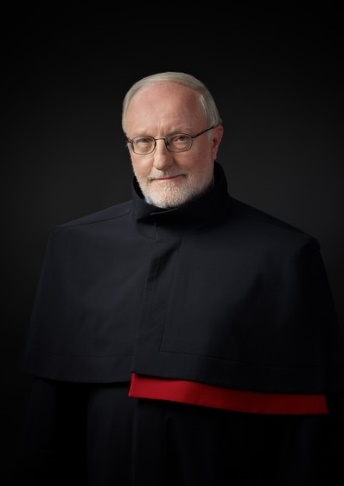
JUDr. Ing. Jiří J. Zemánek, CSc.
Judge at the Czech Constitutional Court
Jiří Zemánek, JUDr.Ing.CSc., was appointed judge of the Czech Constitutional Court on January 20, 2014.
He graduated in law and economics in Prague. Since 1993 a researcher in international economic law at the Czechoslovak Academy of Sciences. In 1990 he became fellow of the Alexander von Humboldt-Stiftung at the Max-Planck-Institute for Foreign and International Private Law in Hamburg, in 1991 assigned to the Swiss Institute of Comparative Law in Lausanne. In 1993 he came to the Charles University in Prague as a full-time lecturer, since 1998 he is Jean Monnet Professor of EU-law focusing on European constitutional law (member of the European Constitutional Law Network) and legal implications of the Czech accession to the EU. Jiri Zemanek is member of the Council for Legislation of the Czech Government, President of the Czech Branch of International Law Association.
His notworthy activities regarding EU constitutional topics are numerous:
Jiri Zemanek is co-founder of European Legal Studies at Charles University in Prague as well as co-author of the first large format textbook on European Union law.
As Vice Dean of the Law Faculty, he promoted the mobility of students and teachers within the framework of the EU programs Tempus/Erasmus, introduced specialized courses in English, German and French law in the European context, led by professors from foreign universities
Zemanek is co-founder of the interdisciplinary training program Europeum for employees of public administration and national coordinator of research projects (German Research Society, Law Faculty of the Technical University of Dresden). He is lecturer at the Academy of Justice and chairman of the Czech Association for European Studies (ECSA), the Czech branch of the International Law Association (ILA).
In the years 2001-2012 Zemanek lectured on European law at the Metropolitan University in Prague. As a member of the Legislative Council of the Government in the years 1998-2006, he took part in the process of approximation of the Czech legal system to the law of the European Union and in the work of the Commission preparing the Euro-amendment of the Constitution of the Czech Republic.
During the negotiations on the Treaty establishing a Constitution for Europe (2002-2003) he was a member of the Advisory Team to the Government Representative in the Convention Jan Kohout
He gives advice to the European Union (selection of lawyer-linguists for the Court of Justice of the European Union, Board of the Education, Audiovisual and Culture Executive Agency), lectures at universities in Hamburg, Berlin, Reich, Warsaw, Madrid and the USA and is a regular speaker at colloquia of the European Network of Constitutional Law, the Societas Iuris Publici Europaei and the T.M.C. Asser Institute in The Hague and at conferences in Europe.
Furhermore, he is a founding member of the Advisory Board of the European Constitutional Law Review and member of the editorial board of Jurisprudence and International Relations magazines.
